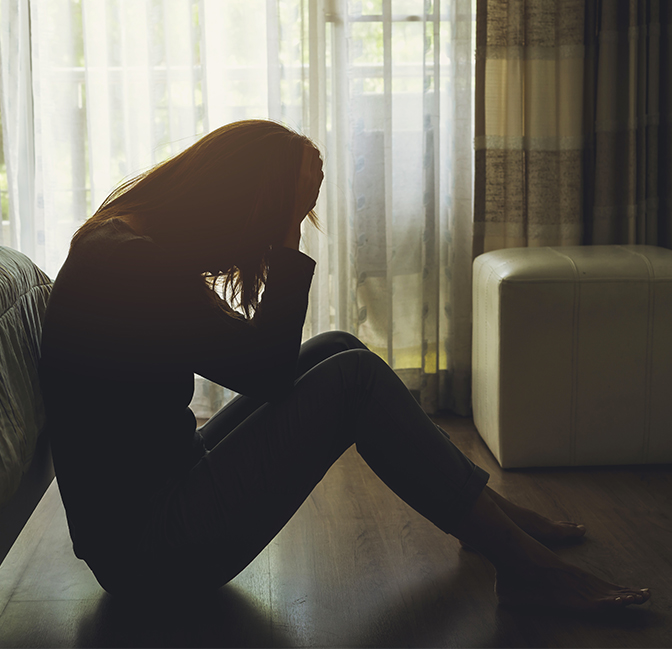
Menstrual headaches are one of the most common unpleasant symptoms of the menstrual period, and these headaches have a tangible impact that can be measured in dollars. Researchers estimate that migraines and headaches cost US companies $13 billion per year. Since headache sufferers are three times more likely to be female, those costs due to absenteeism and decreased productivity due to pain disproportionately affect women. Between 60 and 70% of women who get migraines or severe headaches say these are menstrual headaches, so menstrual headaches are not something to be ignored or taken lightly.
Characterized by pain in one or both sides of the head, menstrual headaches can last for hours with most lasting between four and 72 hours. They are often accompanied by nausea, dizziness, vomiting, or blurred vision—common symptoms of migraines. The exact causes of menstrual headaches are complex. The drop in the hormones estrogen and progesterone certainly plays a significant part, but researchers feel that psychological factors also play a role. General anxiety from work, family, or other areas of personal life causes physiological changes that can trigger menstrual headaches.
Menstrual headaches have overlapping triggers, and hormones are definitely the primary culprit, meaning that sufferers should talk to their doctors about any hormone treatments, including birth control pills or other hormonal contraceptives. However, for many women menstrual headaches are the product of a perfect storm produced by both hormonal fluctuations and extreme stress and anxiety.
There are many medications that can aid in treating menstrual headaches. Taking a NSAID for two to three days prior to the menstrual period and continuing throughout can make all the difference for many women. There are also other types of medical treatments available by prescription. For some women, however, because of the gastrointestinal effects of NSAIDs, side effects of the prescription options, or simply personal preference, nonmedical treatment is the best option.
Lifestyle changes may reduce the overall level of stress and anxiety to the point that menstrual headaches are not triggered. These are difficult changes to make, and there has not been a lot of research into the relationship between lifestyle changes and hormonal levels. These types of changes aim at reducing stress and include exercise and diet changes that include:
- Yoga or other meditative exercises
- Regular exercise aimed at improving overall fitness level
- Diet choices rich in estrogenic foods, such as soy, apples, alfalfa, cherries, potatoes, rice, and yams
Sometimes, these changes can make all the difference, but there is still a lot of research to be done to determine if chemically these lifestyle changes affect the body’s production of hormones.
Alternative medicine also offers treatments for women who wish to avoid pharmaceutical medications. Remedies like Black Cohosh or Macafem and acupuncture are the most common treatments. The idea behind the herbal remedies is twofold. Black Cohosh is an example of a phytoestrogen product that contains estrogenic components produced by plants. This approach seeks to replace the body’s estrogen or supplement it with plant products. Non-estrogenic herbal remedies like Macafem contain no estrogen, but they are thought to nourish hormone producing glands to balance all hormones, including estrogen, progesterone, and testosterone.
Whether looking for medical, nonmedical, or mixed treatment options, relief for menstrual headaches is available. For more information please contact us today!







